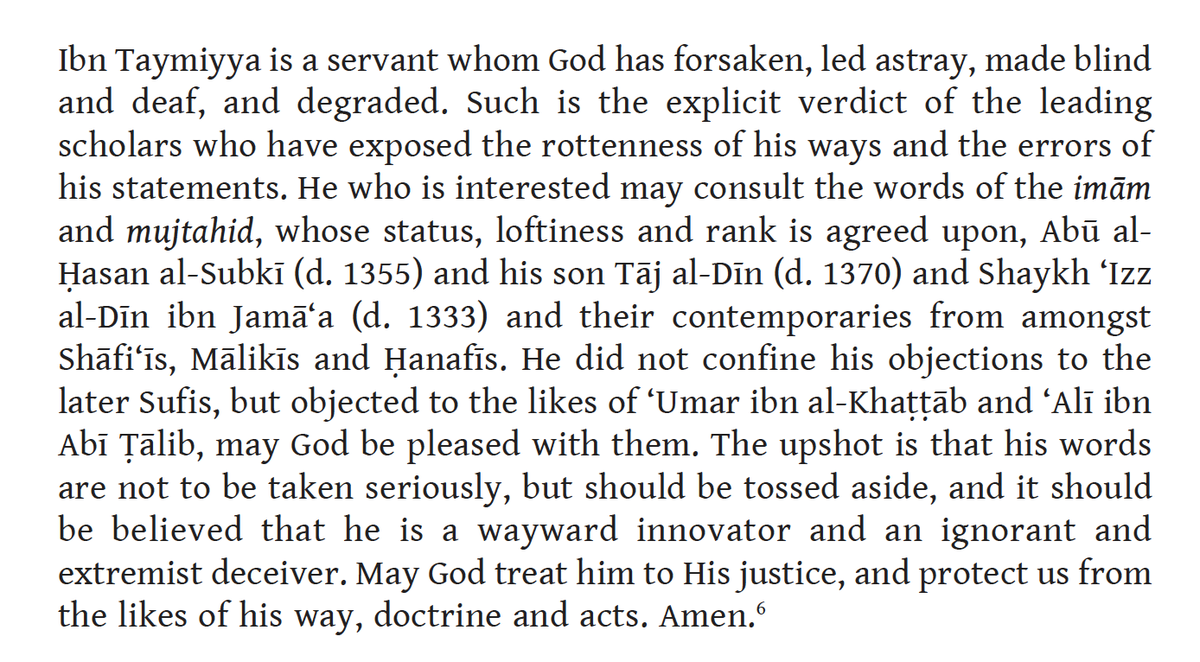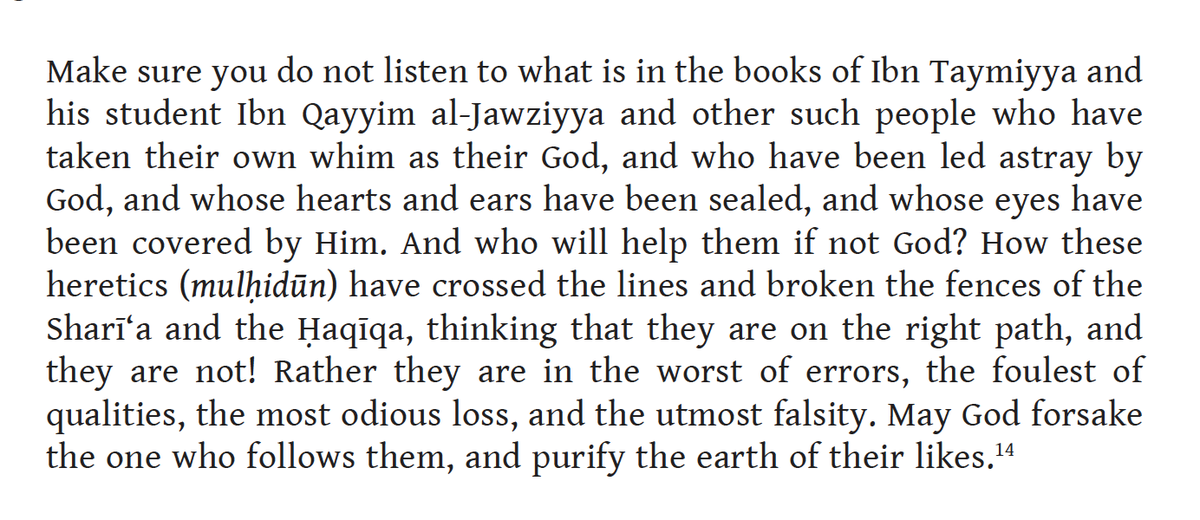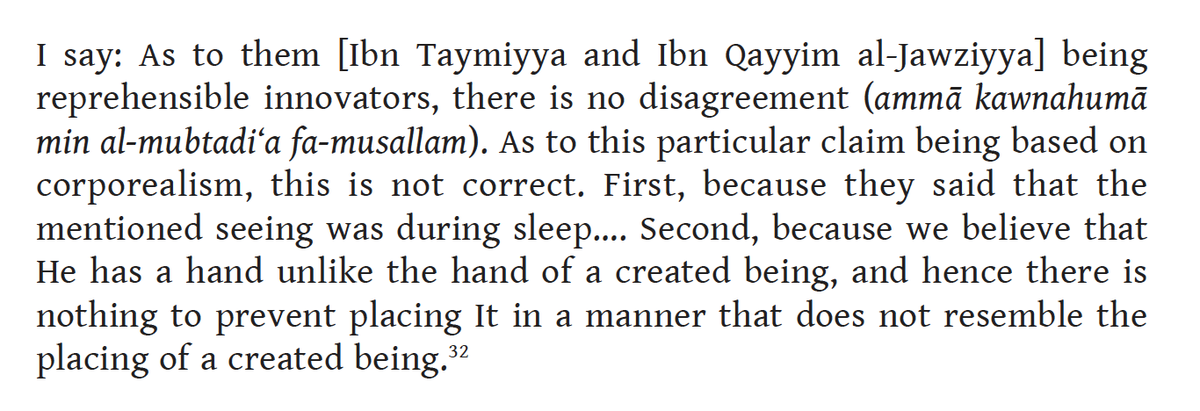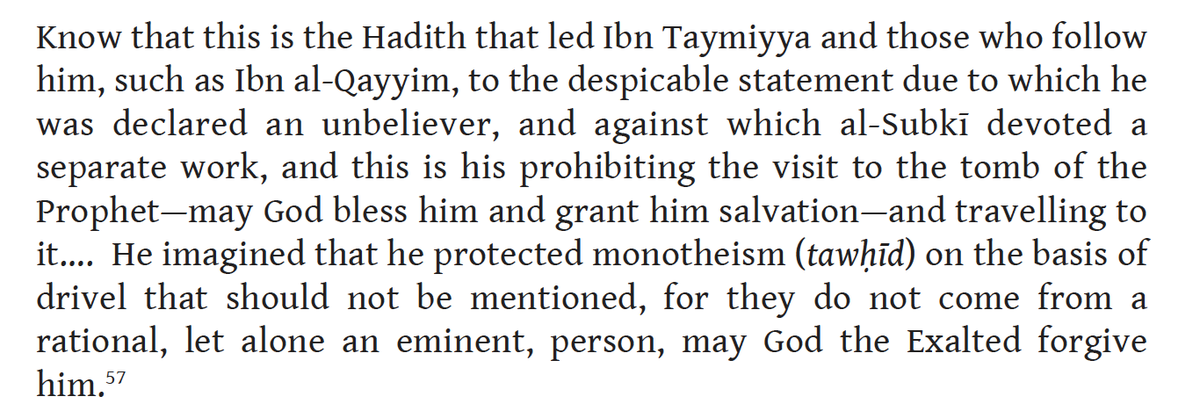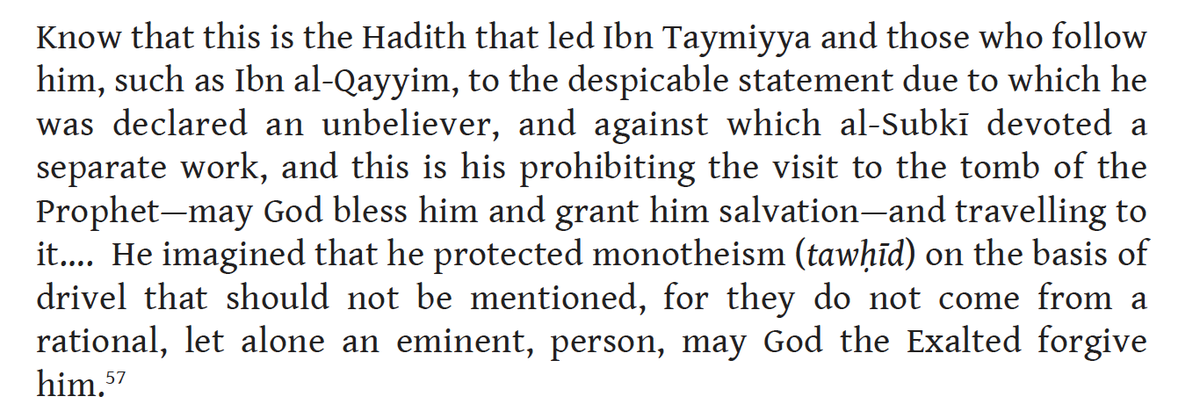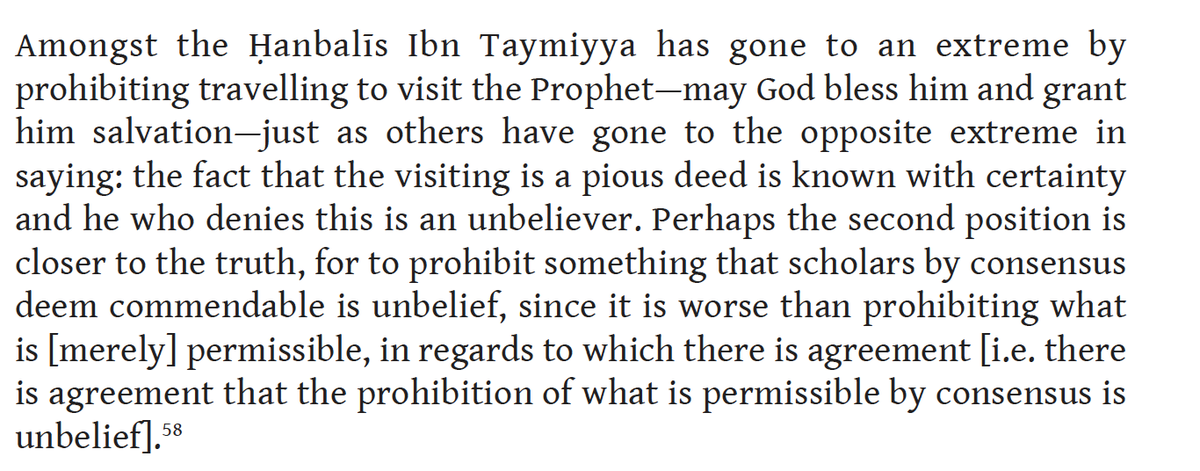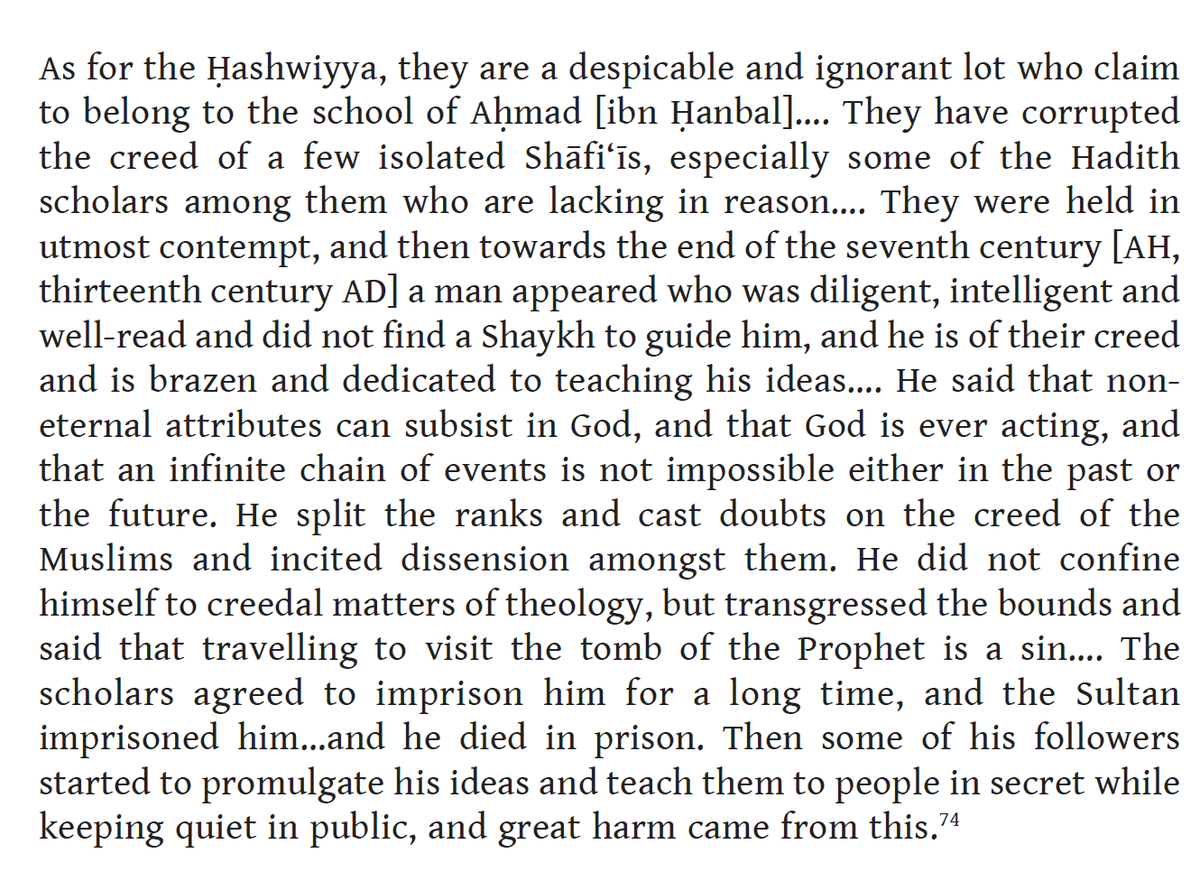Ibn Taymiyyah (1263-1328) is without a doubt a dynamic intellectual figure that left an indelible mark on the Muslim intellectual world. But was his influence in medieval times exaggerated? A brief thread. 1/
It has been argued that Ibn Taymiyyah's influence on medieval Sunnism was of little impact (as claimed by Khaled El-Rouayheb, for example). El-Rouayheb states that despite contrary claims, Sunni theology continued to flourished well after Ibn Taymiyyah's scathing criticisms 2/
contrary to claims, Sunni theology continued to flourished after Ibn Taymiyyah's scathing critiques of kalām. When one looks at the manuscript evidence, it is clear that Sunni theologians wiring after the 1300s AD where read widely, 3/
from Morocco to India, until the 1800s. Their works were in wide circulation, much more than the writings of Ibn Taymiyyah. These include such Sunni theologians as Ījī (d. 1355), Taftāzānī (d. 1390), Jurjānī (d. 1413), Sanūsī (d. 1490), 4/
Dawānī (d. 1502), and Laqānī (d. 1631). A study of medieval and modern manuscript catalogues and bio-bibliographic evidence shows these Sunni theologians enjoyed great currency, while Ibn Taymiyyah was marginal 5/
In logic too. While Ibn Taymiyyah attacked the discipline, it seems his criticisms had little impact on growth of logic in Sunni learned circles. Again, evidence is based on how popular logic according to works in circulation, commentaries, super-commentaries, glosses, etc. 6/
The same is true of Sufi doctrines associated with Ibn ʿArabī who was fiercely attacked by Ibn Taymiyyah. The major purveyors of Sunni learning after Ibn Taymiyyah defended Ibn ʿArabī, some espoused his doctrines, others expressed admiration. They include 7/
Suyūṭī (d. 1505), Anṣārī (d. 1519), Kemālpāsāzāde (d. 1534), Shaʿrānī (d. 1565), Ibn Ḥajar al-Haytamī (d. 1566), Munāwī (d. 1622), Kurānī (d. 1691), and Nābulusī (d. 1731), to name but a few. Later apologists for Ibn ʿArabī simply ignored Ibn Taymiyyah's criticisms. 8/
Non-Ḥanbalī Sunni scholars between 1400s and 1800s spoke harshly of Ibn Taymiyyah. The Shāfiʿī scholar Ibn Ḥajar al-Haytamī (d. 1566) described Ibn Taymiyyah in harsh terms, as his remarks below show. 9/
The Egyptian jurist al-Khafājī (d. 1658) rejected Ibn Taymiyyah's view on the visitation of the tomb of the Prophet. As did Mullāh ʿAlī al-Qārī and Qaṣtallānī. 11/
Tāj al-Dīn al-Subkī (d. 1370), the famous Shāfiʿi jurist and historian wrote disparagingly of Ibn Taymiyyah's followers, describing them as a minority in his time 12/

 Read on Twitter
Read on Twitter